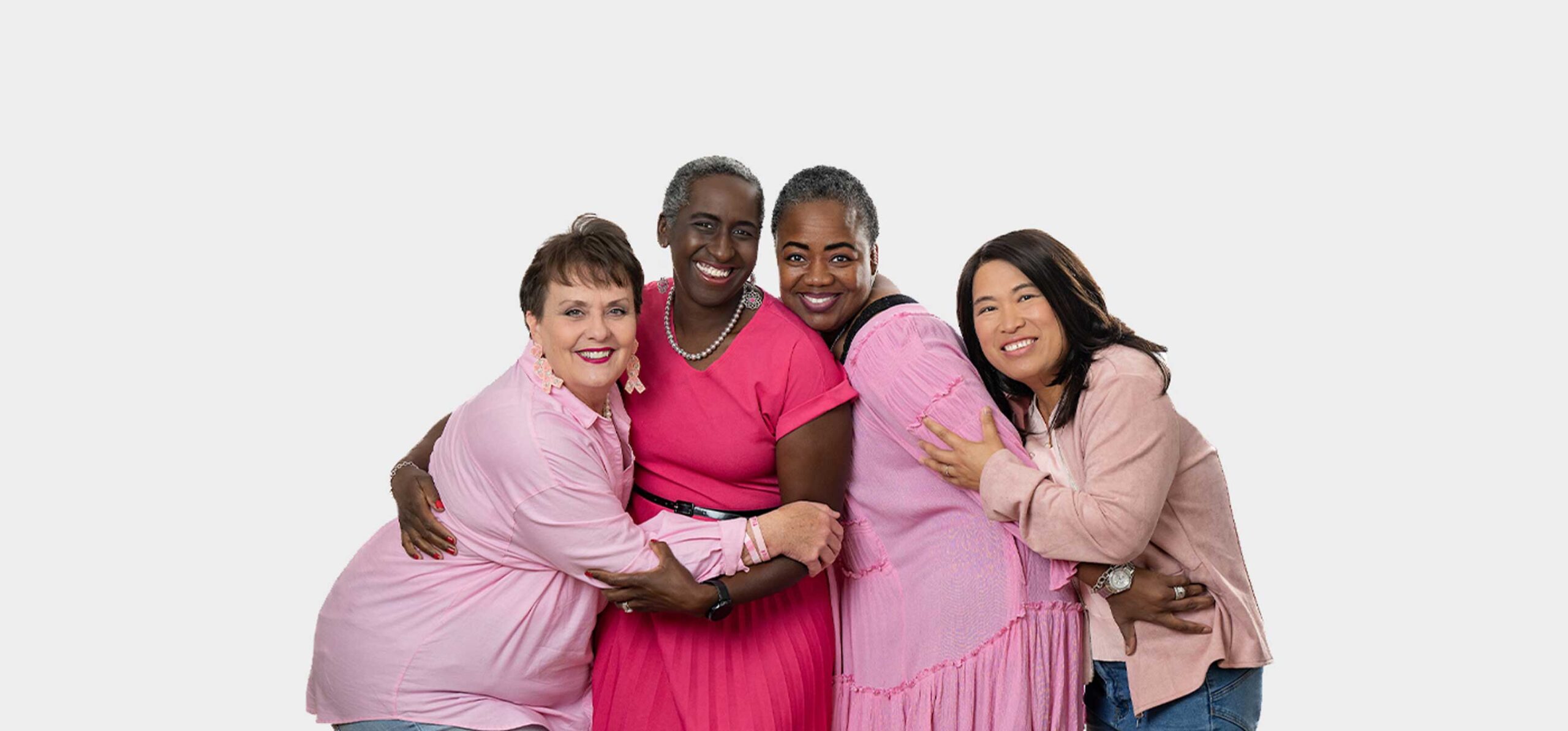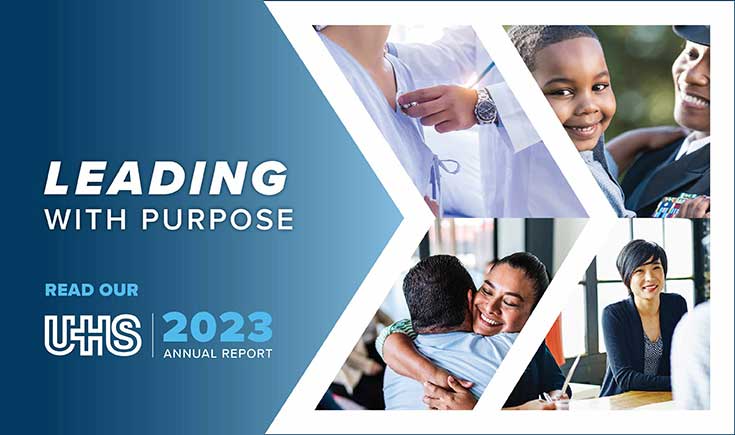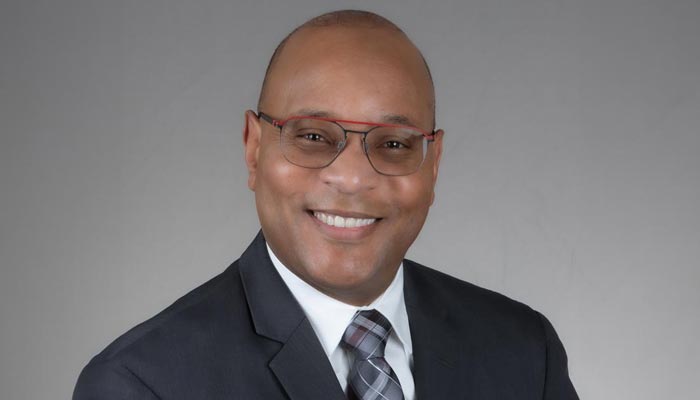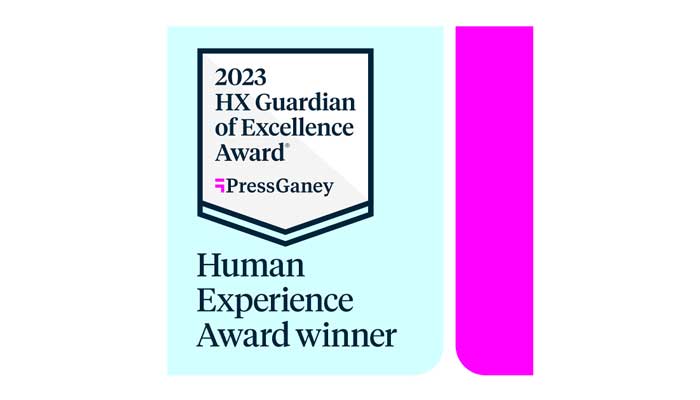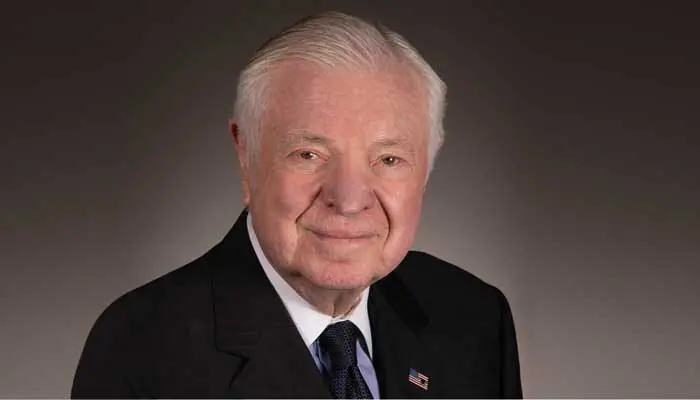We honor breast cancer survivors and provide hope for those still fighting the battle.
Did you know?
According to the American Cancer Society, there has been a 43 percent decline in breast cancer deaths between 1989 and 2020, mainly due to improvements in treatment and early detection by mammograms.
Learning you have breast cancer can be frightening and unsettling, and no one should have to go through it alone. Beating the disease requires support from family members, friends, and experienced medical professionals.
"A breast cancer diagnosis is a life-altering event that affects not just the person, but also their family and friends," says Dr. David Rice, Chief Medical Officer for the Acute Care Division at UHS. "We are committed to being a comprehensive resource for women facing this difficult journey, with advanced treatments, experienced medical teams, and support tailored to each patient's unique needs. You're not alone; we're here with you every step of the way."
Watch this video to learn symptoms of breast cancer
Breast Cancer Survivor Stories
Brenda McCray, Susie Navarro, Yolanda Hill and Jin Coplin (see photo atop page, left to right) faced their breast cancer journeys with faith, hope, courage and determination. With the support of their families, friends, and the staff at Aiken Regional Medical Centers and The Cancer Care Institute of Carolina, they dug deep within themselves, stayed positive, and refused to give up. These are their stories.
Brenda McCray
McCray was 50 years old in 2020 when she found during a self-exam, and a mammogram confirmed, that she had invasive ductal carcinoma. She had a lumpectomy, then received chemotherapy and radiation treatments as well as medication to reduce the risk of a return. Three years later, though, a mammogram identified a new issue, and she decided to have a double mastectomy.
Along the way, she developed a deep appreciation for the care provided at Aiken Regional Medical Center, especially from Dr. Jill Enter. “Dr. Enter truly sets Aiken Regional apart,” McCray said. “She cared for me as a friend and as a patient! Before surgery she prayed with me, which really put my mind and heart at ease. Not all doctors do this, and it showed me that she was different.
“I believe that Aiken Regional Medical Centers cares about me as an individual, and I’m not just a number. The staff follows up with phone calls just to ensure that I am okay, both mentally and physically. They have provided me with the resources that I need to maneuver my way through.”
Susie Navarro
A serious car accident in March 2021 landed Navarro in her doctor’s office, with bruising in her upper body. An ultrasound showed irregularities in her right breast and led to more tests, which confirmed that Navarro, 56, had an aggressive form of breast cancer.
The team at Aiken Regional pursued an equally aggressive treatment, with chemotherapy before and after a double mastectomy, as well as seven weeks of radiation therapy. Today, Navarro is cancer-free and sings the praises of her care providers.
“I recommend Aiken Regional to someone diagnosed with breast cancer because I am a living testimony!” she said. “The aggressive treatments for my medical plan saved my life! I won’t go anywhere else because of the quality of care I received from everyone at the hospital. The hospitalists are wonderful! My surgeon, Dr. Wayne Frei, is the best and he truly cares about all his patients. The doctors, nurses, nurse techs, food service and housekeeping staff go above and beyond to serve their patients.”
Watch this video to learn ways to prevent breast cancer
Yolanda Hill
Hill, 48, took a wait-and-see approach after she felt a lump in her right breast. Two months later, she sensed the lump was growing. She saw her doctor. A 3D mammogram and ultrasound led to a diagnosis of HER2-positive breast cancer.
She underwent chemotherapy to shrink the tumor, followed by surgery, radiation and six rounds of chemotherapy. “I decided to seek treatment at Aiken Regional Medical Centers after hearing positive feedback about the hospital from the community,” she said. “Dr. Wayne Frei is a wonderful doctor. I had many positive feelings and was able to fully understand his medical advice. My whole cancer team is awesome, and the nurses I had at the oncology center were terrific.
“I am grateful and thankful to God for having a great experience with Aiken Regional’s staff. May God bless them all.”
Jin Coplin
Coplin was 44 when she was diagnosed with invasive ductal carcinoma breast cancer after first identifying through a self-exam. She had a lumpectomy, followed by several rounds of chemotherapy.
“I found the Aiken Regional team special because every single doctor and nurse I encountered, especially Dr. Jill Enter, was kind, treated me as their friend and cared about my feelings,” she said.
Her advice to others who suspect they might have an issue? Don’t wait until it gets worse. “Find the problem and treat it,” Coplin said. “Breast cancer is scary but find it early and treat it early. Be positive and you will win.”


